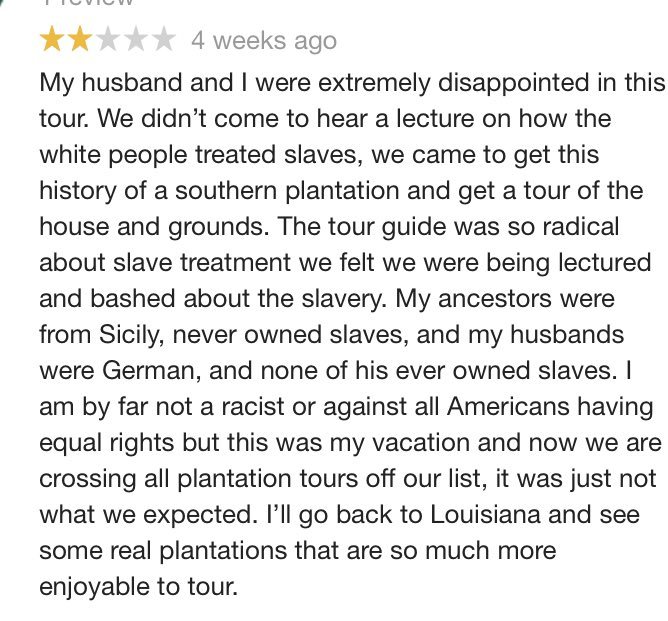
Dear Disgruntled White Plantation Visitors,
Hi! My name is Michael W. Twitty and I’m one of those interpreters who has watched you squirm or run away. I’m not a reenactor, because G-d forbid I reenact anything for the likes of you; but I am an interpreter, a modern person who is charged with educating you about the past. I take my job seriously because frankly you’re not the one I’m centering. I’m performing an act of devotion to my Ancestors. This is not about your comfort, it’s about honoring their story on it’s own terms in context.
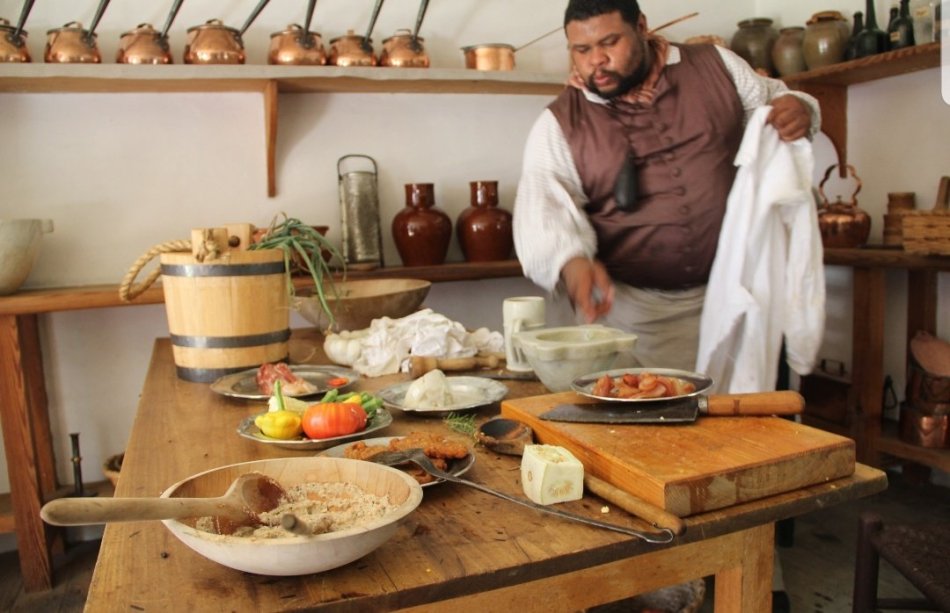
For over a decade I have been working towards my personal goal of being the first Black chef in 150 years to master the cooking traditions of my colonial and Antebellum ancestors. Five trips to six West African nations and more on the way, and having cooked in almost every former slaveholding state beneath the Mason-Dixon line, my work is constant, unrelenting mostly because I have to carve my way through a forest of stereotypes and misunderstandings to bring our heritage to life. I also just want to preserve the roots of our cooking before they’re gone.
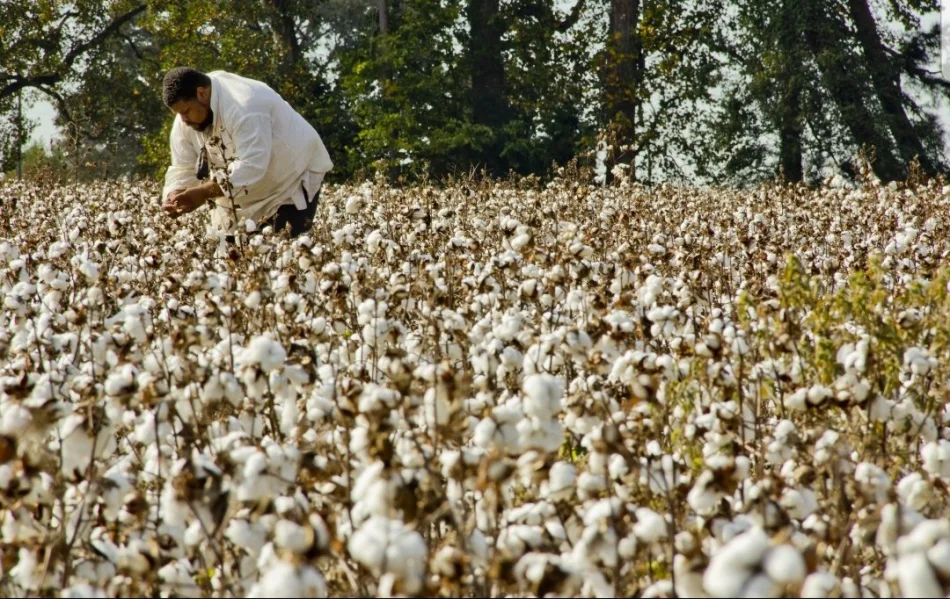
Because minds like yours created the “happy darky,” some people of color are ashamed of my work. Although I am none of the things they imagine me to be, I can understand why they are confused about what I (and many people like me) do. Once upon a time folks like yourselves wanted to have a national Mammy monument on the Mall, to remind us about the “proper” role we were meant to occupy and to praise our assumed loyalty. No, our forebears are the real greatest generation. With malice towards none they constantly took their strike at freedom and yet their heroism was obscured because you guessed it, white supremacy, had to have the final say.
Southern food is my vehicle for interpretation because it is not apolitical. It is also drenched in all the dreadful funkiness of the history it was created in. It’s not my job to comfort you. It’s not my job to assuage any guilt you may feel. That’s really none of my business. My job is to show you that my Ancestors, (and some of yours quiet as its kept…go get your DNA done…like right now…talking to you Louisiana and South Carolina…) resisted enslavement by maintaining links to what scholar Charles D. Joyner famously called a “culinary grammar” that contained whole narratives that reached into spirituality, health practices, linguistics, agricultural wisdom and environmental practices that constituted in the words of late historian William D. Piersen, “a resistance “too civilized to notice.” Want to read about it? Since you already know I’m a literate runaway from the American educational system, I wrote an award winning book called The Cooking Gene. Like Eddie Murphy said, “but buy my record first…”
(BTW it’s not a cookbook its the story of my family told through culinary history from Africa to America and from enslavement to freedom.)
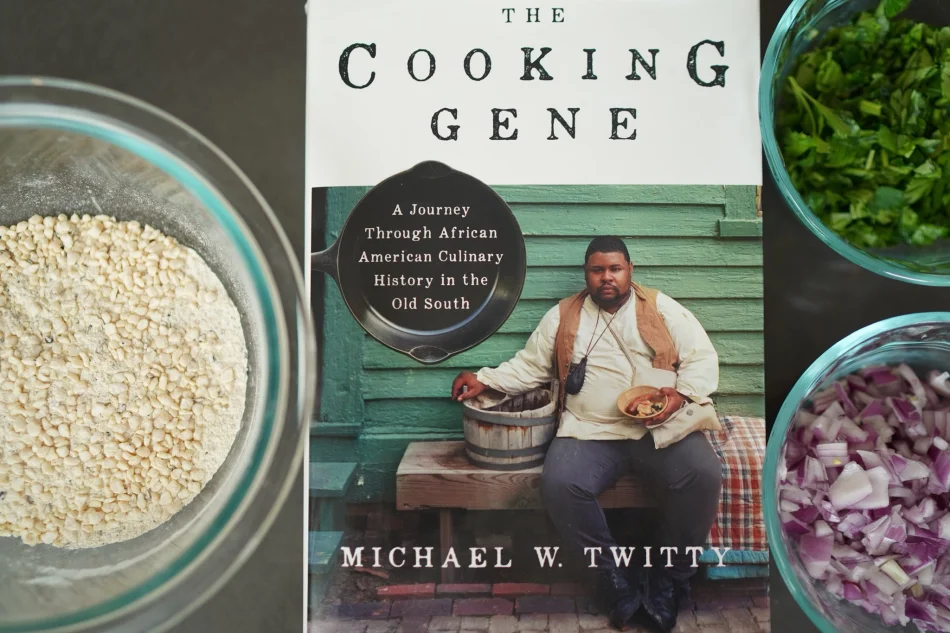
What’s most telling about the above quote and others is how blithely unaware you are about the real American struggle for freedom. When you’re in one of those hot ass kitchens watching me melt you are secretly telling yourself you’re glad you’re not me–or them. And yes, I’m about to go Designing Women/Julia Sugarbaker (in that pink hoop skirt) on you…so you might want to run now.
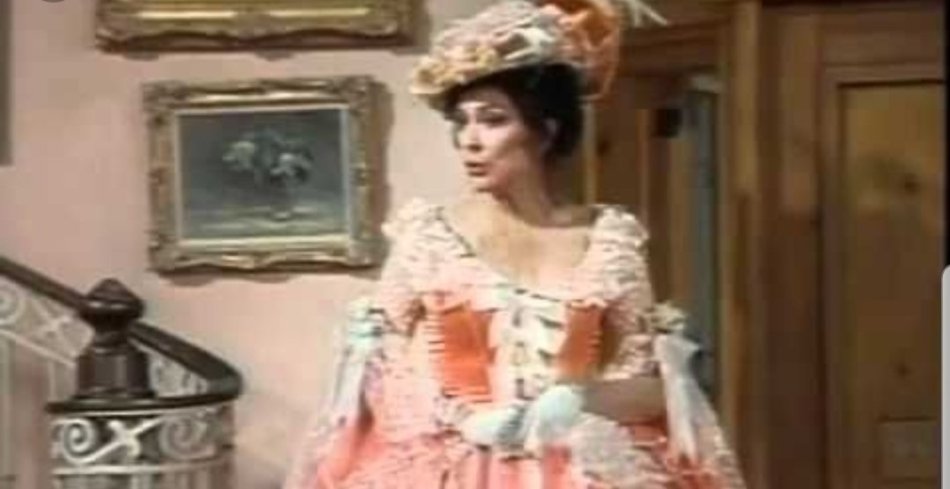
Thanks to a viral tweet the whole country sees what me and my colleagues have seen for quite some time. We get it. You want romance, Moonlight and Magnolias, big Greek Revival columns, prancing belles in crinoline, perhaps a distinguished hoary headed white dude with a Van Dyke beard in a white suit with a black bow tie that looks like he’s about to bring you some hot and fresh chicken some faithful Mammy sculpture magically brought to life has prepared for you out back.
The Old South may be your American Downton Abbey but it is our American Horror Story, even under the best circumstances it represents the extraction of labor, talent and life we can never get back. When I do this work, it drains me, but I do it because I want my Ancestors to know not only are they not forgotten but I am here to testify that I am their wildest dreams manifest.
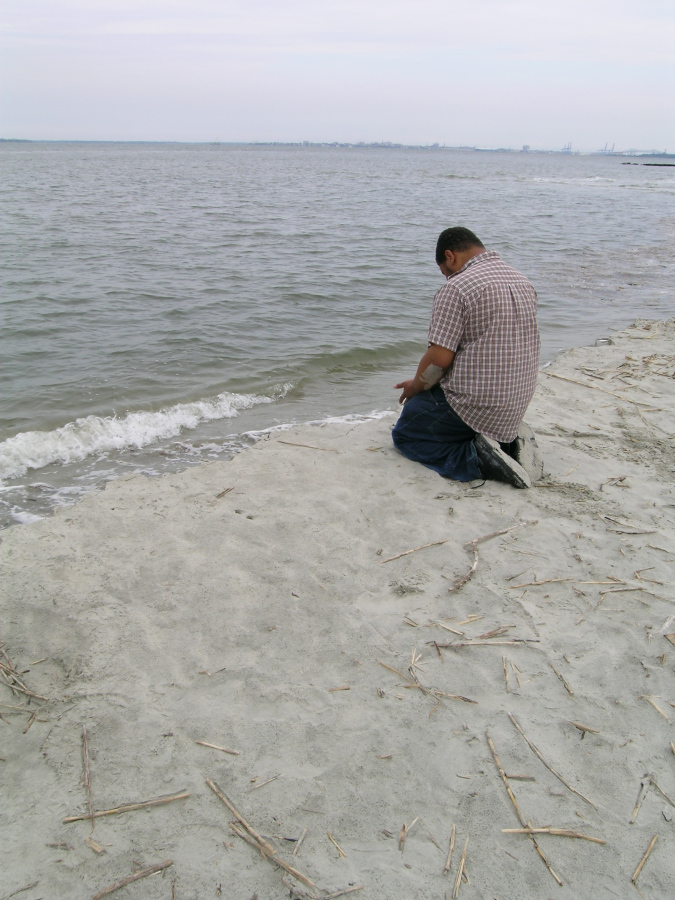
While your gall and nerve anonymously preserved for eternity online is cute, I thought you might want to be further disturbed not by the actions of the dead, but by those of the living:
Like remember when you took the form of the docent in Virginia who told me, “Look, you don’t have to go on about the history, just tell them you’re the cook and be done with it…”
Or remember when you waltzed in with a MAGA hat and told me “I know what it’s like to be persecuted like a slave. I’m an evangelical Christian in America. Its scary!” (More power to you for your faith, but that analogy? Or skewed perception? Or saying that nonsense to my face with the assumed confidence that I wouldn’t respond?)
My personal favorite was when I spilled some of the contents of a heavy pot of water as the light was dying and you all laughed and one of you said…and I could hear you…”This boy doesn’t know what he’s doing.”
“Boy.”
I was exhausted. I had been cooking over an open hearth for 7 hours. One enslaved cook in Martinique was thrown alive into an oven for burning a cake. How do we know? His mistress calmly showed his charred remains to her guest after the meal. Spilling or burning food could have meant my ass.
How about that time you asked me if I lived in that kitchen with the dirt floor. Or when you said I was “well fed” and had “nothing to complain about.” “This isnt sooo bad. White poor people had it just as bad if not worse.” I do so love it when folks like you ask me “What are you making me for dinner?”
In South Carolina there was that time four of you walked in grinning and salivating as you often do, and were all ready to be regaled of the good old days until a German tourist scratched your record. He said, “How do you feel as a Black American, dressing like your Ancestors and cooking and working this way?”
You started to frown.
I said, “Slavery was colloquial and discretionary, one story doesn’t tell all. But its important to remember that our Ancestors survived this. Survived slavery.”
He pushed me further. You gestured towards the door.
“How do people feel about slavery?”
My retort was fast. “How do you feel about the Shoah? How do you feel about the Holocaust?”
The German said, “The Holocaust was a terrible thing and never should have happened. We were children when Germany was coming out of the ashes. But it is a shame upon our nation.”
As the four of you turned to leave, I got in a good one: “That’s a phrase you will almost never hear some white Southerners say. “Slavery was a terrible thing and never should have happened.”
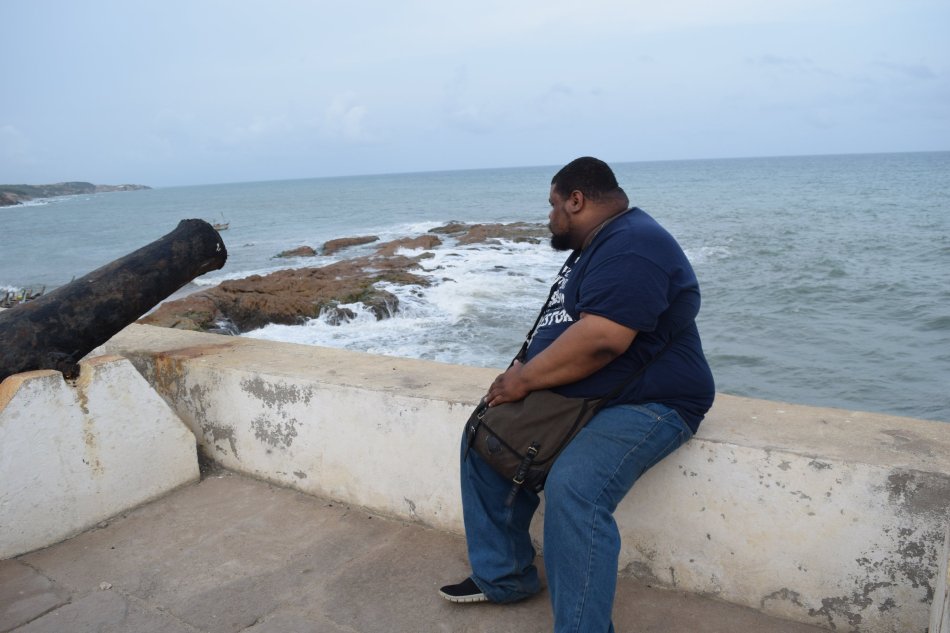
But…the South is not to be indicted on it’s own. Without Northern slave trade captains, merchants, mill owners, and even universities that had stock in the enslaved, the Southern economy could not have flourished. (And please miss me with “you sold your own people..” the corporate identity of Blackness was not a feature when African, Arab and European elites and merchants conspired during the time of the slave trades…you cant learn everything from the crossword section of StormFront…)
Furthermore your immigrant ancestors would never have had a land of opportunity to come to. Or a people to walk on as your folks climbed towards whiteness. The most valuable “commodity” in Antebellum America during the years of exponential growth was not wheat, corn, tobacco, rice or even cotton. The most important commodity of the mid 19th century in America, was the Black child, and behind the children, the body of the Black woman.
Dont get me wrong. This isnt about being anti-white or ignoring other people’s traumas. But if you do think I don’t like you because you identify as white that’s not it. I suspect what you might be doing—identifying with heathy slices of weaponized racial power, privilege, attainment and achievement obtained in a hierarchical exploitative American dream between two pieces of unexamined whiteness, I guess the plantation isn’t the ideal place for you to escape.

Facing my/our past has been my life’s journey. It’s also been at times devastating and painful. But reflection in no way equals one second in the lives of the enslaved women and men whose blood flows in my veins. I had the privilege of rediscovering my roots on a North Carolina plantation at a dinner we prepared for North Carolinisns of all backgrounds. Knowing that the enslaved people who once occupied those cabins could never have dreamed of that rainbow of people sitting together as equals in prayer, food and fellowship while my Asante and Mende roots were being uncovered after centuries of obfuscation was for me a holy moment.
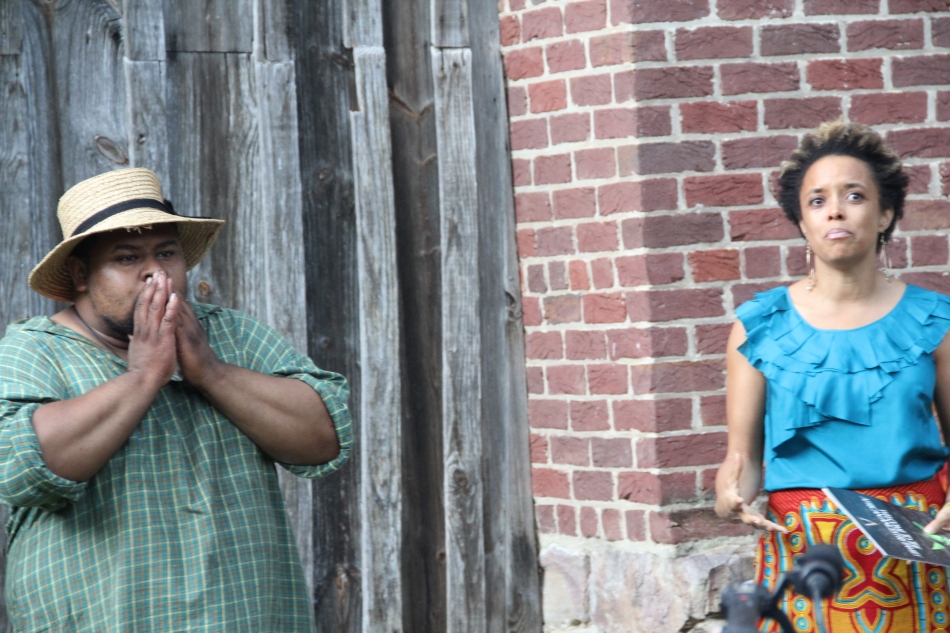
You miss out on magic like that when you shut down your soul. Going to what few plantations remain, your job is to go with respect and homage and light. You know, like I felt at the Tenement Museum and learned about the first American experience of those who passed through Ellis Island. Your job is to be thankful and grateful. Your job is to not just hear but listen. Your job is to know that Black lives mattered then just as they do now. Your job is to face the reality that hardships and hurt have been passed down from the American Downton Abbey, the American plantation.

Rape happened there..to the point where almost every African American with long roots here bears that evidence in their DNA. Theft of our culture. Forced assimilation. The breaking up of families…like all of us. Of course there was economic and legal exploitation and oppression, the effects of which have never been extricated from the American story.

But because enslavement was so damn fuzzy…we forget that those maudlin moments of blurred lines passed down by sentimental whites were purchased with pain. I tell my audiences that enslavement wasn’t always whips and chains; but it was the existential terror that at any moment 3/5ths could give way to its remainder, and unfortunately often did.
Guilt is not where to start. If you go back start with humility. Have some shame that NONE of us are truly taught this. Be like the working class white lady whose family I met in Louisiana who brought her young kids because she “wanted them to know the whole story, the story of American history is Black history.” Too bad she ain’t going viral. Wherever you are my cousin, I salute you.
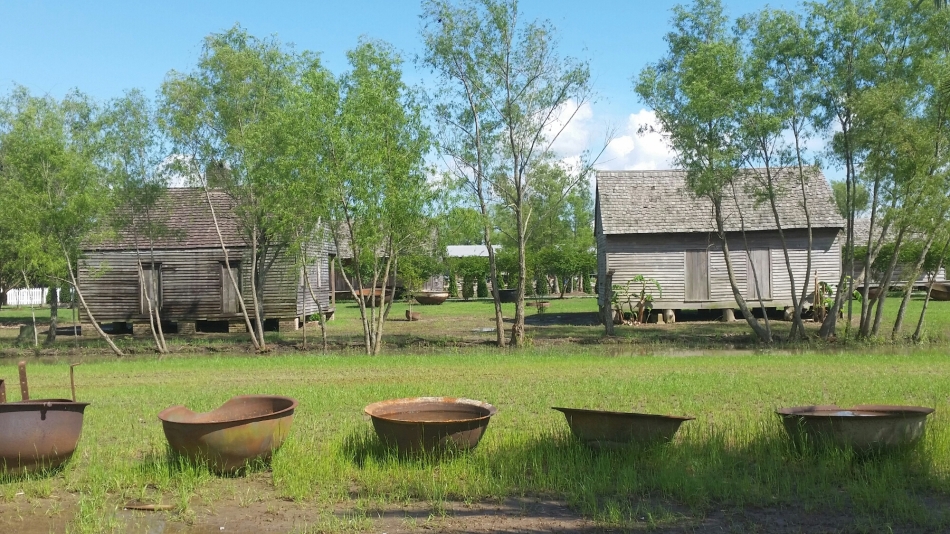
Right now we need people to exercise their compassion muscle over their dissatisfaction or disappointment. Right now we need people to see the parallels. Right now we need people to remember the insidious ways history repeats itself. Right now we need to be better humans to each other. Right now we need people to remember the righteous who sacrificed so we could tweet and leave awful online reviews.
Y’all come back now y’here?
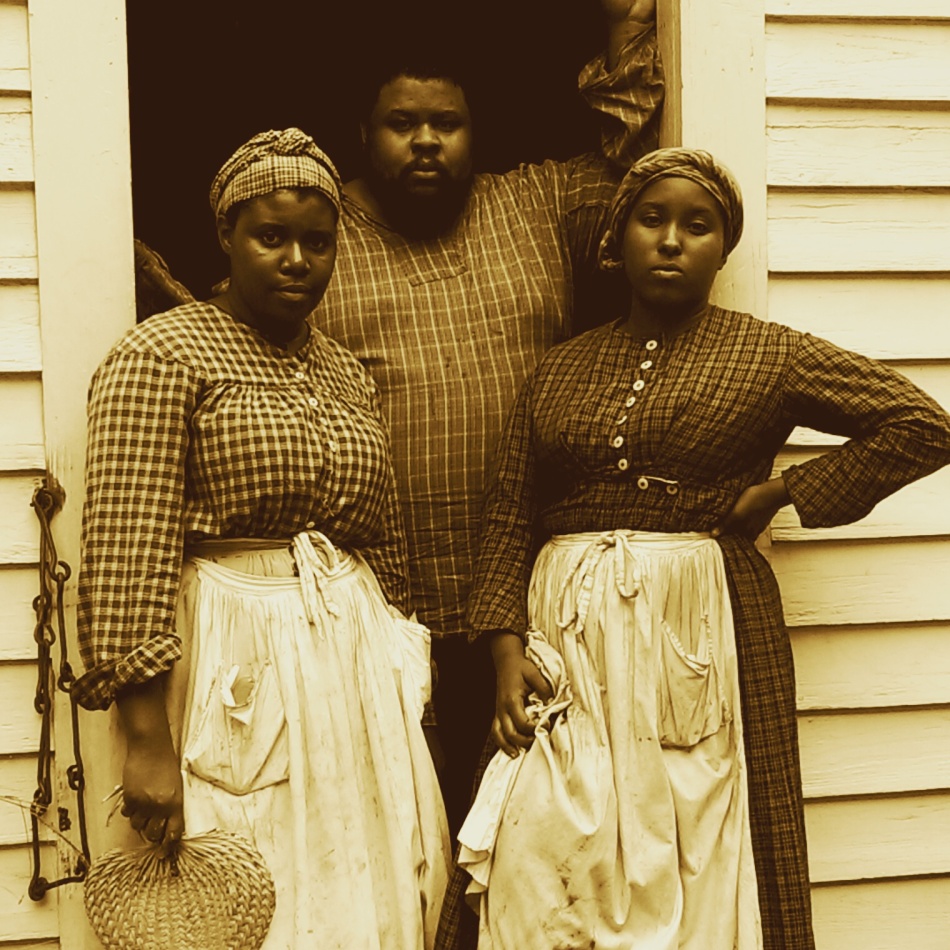

Love the post. Weren’t you on PBS?
LikeLike
Yes!
LikeLike
How can I find out who my enslaved ancestor was? I have no idea how to learn that and want to
LikeLike
Last census record. 1870. Who were their parents and grandparents and who did they live around?
LikeLike
It was the Carter’s I believe…TN or KY maybe? My mom has an amateur geneologist family tree thing. I just want to know more about something I never knew, that I have black ancestors. But it would have been in the 1700’s so further back then that census. But that was how you found out? Could I convince you to shoot me an email by chance?
LikeLike
We live in such depressing times with the current administration. I grew up in the 60s and thought we were making more progress. Thank you so much for telling your story and re-enacting the heritage. It makes me hopeful.
LikeLike
Michael, profound piece.
LikeLiked by 1 person
As deft with the words as you are with a knife.
LikeLiked by 2 people
Mr. Twitty, you are the sexiest bear alive. I am breathless with your adorable visage and crisp, sexy, wit. Keep turning me on. Once I go …well you know the rest… Love Guy from Boise
LikeLike
Thanks boisebeeconservation. I adore being a pollinator.
LikeLike
Wow, you are an amazing writer/historian and you have inspired me to come see this place. First time I ever thought about visiting a southern plantation. I want to know more.
LikeLiked by 1 person
So proud to have you as my friend! Well said!
LikeLike
Thank you Sir!
LikeLiked by 1 person
Incredible history lesson. Glad I came across this. Thank you.
LikeLike
Mr. Twitty, thank you, thank you, thank you! I appreciate your analysis, and response to this “disgruntled White plantation visitor.” I saw you, some time ago, on PBS and was intrigued. I hope to see you in person, one day soon, on one of my southern travels. By the way, I would suggest to those White people that squirm their way through the tour to read ‘White Fragility’ by Robin Diangelo. Perhaps getting in touch with the root of their fragility will give them the fortitude to hear and appreciate the true story of the American southern plantation.
LikeLike
Thank you for sharing your thoughts and story. Continue your journey.
LikeLiked by 1 person
“The Old South may be your American Downton Abbey but it is our American Horror Story…” absolutely brilliant. Thank you for sharing this
LikeLiked by 1 person
Well said, and I can only hope, well heard.
I hope you have the strength to keep speaking because so many ears have not heard and I believe many really do want to know. They have no idea that piece of the puzzle even exist for various reasons, some blocked by their own selves, some blocked by those who still decide what we learn, parents-teachers-politicians-board of education.
LikeLike
Great article: I recognized you from ‘Townsends and Sons’ historic cooking channel!
PS–The white lady who said, “the story of American history is Black history” may have been my mom! Woman was alllllll over historical reenactment when we were kids, especially if it made her strange, offbeat children more engaged with history! (It worked, all of us are roaring history dorks who love museums and state parks, LOL)
LikeLike
Badass truth teller.
Sorry I missed your talk in Macon GA!
This is brilliant.
LikeLiked by 1 person
Bravo, Michael Twitty! You said it all. Keep educating white people and speaking the truth. The folks who feel the most discomfort are the ones who need to hear it most.
LikeLiked by 1 person
Thank you for your heart-stirring history lesson. I arrived in Canada from Jamaica as a 5-month-old baby, and did not learn about my enslaved African ancestors until I was in my 30s. I am proud to know that I would not be here if my enslaved African 4th Great Grandmother, her mulatto daughter and quadroon son were strong enough to survive Jamaican slavery. White men were planted the sperm that grew into Betsy Gilchrist (born c 1795) and her son William Webb (born c 1811). William Webb’s eldest son William Menzie Webb was the first person in his Jamaican family to be born after emancipation. He grew up to be a Baptist minister who founded Westwood High School for Girls in 1882. Westwood was the first Jamaican high school that accepted girls of all colours, races and creeds.
Until I learned about my African ancestors (and my Scottish ones) I never understood why, even as a very little girl, I reacted so negatively to any abuse of power. After reading Lawrence Hill’s novel “The Book of Negroes”, my pride in my ancestors increased even more. It had not occurred to me that many of the enslaved Africans had to walk (in chains) from wherever they were captured, to where the slave ships were anchored. Then they had to survive the ocean voyage – many preferred to commit suicide.
Unless I told you, you would never guess that I had any African blood, but my mitochondrial DNA haplogroup originated in West African. I have taught my fair-skinned children and grandchildren to be proud of their enslaved ancestors. Whatever strengths we have surely came from them.
LikeLike
Thank you for the story you are telling. Keep telling it. We need to hear it.
LikeLike
I want to thank that woman for writing her yelp review – but for her incredibly ignorant post thousands would not know of your good work, they would not be educated by your well written, matter of fact essay – nor would they be inspired by your book “The Cooking Gene”. Thank you ignorant woman and Mr. Twitty!
LikeLike
Dearest Sir, I was raised by the kindest most loving parents. My Father would always tell us that our species primary problem was “man’s inhumanity to man.” They made sure that their 8 children were stepped in the flaws and degradation of American history. Primary to this, of course, was the holocaust like plight of African Americans. I so wish I could have been on the tour with those folks who wanted a Disney like experience of the Plantation. I would have said, “excuse me but what do you think happened here and how do you think this place operated? It thrived on the imprisonment of and cruelty of black human beings.” My solution to deal with slavery deniers, white supremacists, and racists of all kinds is to have them, and their families enslaved on a working plantation for 3-6 months. Let them experience the overseer’s whip, the Massa’s abuse of the women, the selling of their children, the 18 hour days in the cotton fields, the daily lack of hope. They may look at this horrible period of our history differently.
LikeLike
Mr. Twitty, this is one of the best articles I have read in a very long time! As a white southerner from slave owning ancestors, I say to you keep preaching the message. People need to wake up and acknowledge the horror of slavery and it’s terrible consequences that have generational effects. I wish, wish I could go back in time and steer my ancestors in a much different direction. It was and is shameful and should NEVER have happened. I hope every southerner reads your article and really drinks in your words and listens to the message. Thank you!
LikeLike
Well written. I can’t imagine visiting a Southern Plantation Museum and not having the historical experience of slavery expressly featured with historic accuracy, detail and heart. Why would you go otherwise? Ignorant people are irksome and dangerous in equal measure. Some of us struggle and strive to help put down ignorance daily. I believe you succeed, sir. May your work as a historian, activist and culinary artist/chef bring you joy and satisfaction all the days of your life. Sadly, I believe your encounters with ignorant tourists will repeat itself many times in future, however, I cannot think of a better adversary to ignorance than yourself.
LikeLike
Powerful and moving. Thank you, Mr. Twitty.
Humankind will never come to realize its full potential until we reckon with our past.
LikeLike
To any of those disgruntle white plantation visitors, it is quite naive for anyone to think that the South was only about mint juleps and happy slaves who were treated well by their owners. Let’s be real! So sad someone would be DISAPPOINTED to hear about the true history of any area and the people who actually lived there. All plantations had slaves in the South and they were not treated well. Everyone should read more and not believe all the fantasy on television about the South and about how great plantation life was for those in slavery. This is from an informed White Plantation Visitor who has visited many plantations in the South and appreciate hearing and knowing the truth about how slaves really lived and were really treated. It’s real history.
LikeLike
So powerful, Mr. Twitty! I would love to use this in my Freshman Comp class at UNM-Valencia, if you don’t mind? This is such a critically important piece of writing, and it would be a perfect essay to dovetail with my students’ deep look into rhetoric and meaning as both pertain to issues baked into this country’s history. ❤
LikeLike
A proud voice of profound wisdom and unassailable reason. So rare these days, and so like a deep breath of pure oxygen that I couldn’t help but come back and read the essay a second time. Absolutely brilliant !
LikeLike
Michael, thank you for this. I recall seeing you on an episode of Andrew Zimmern’s bizarre foods. You were at Locust Grove in Louisville. I’ll never forget what you said: I’m not cosplaying Slavery….” I think all too often tourist think that they are attending a reenactment; the problem with that assumption is that it puts you right back where you don’t wish (nor should not) be: Someone who is neither seen nor heard. Later in that same episode, you said that slaves may have been empty-handed, but they weren’t empty-headed. And that’s the part that’s missing from the Plantation tours that you are trying to bring. The point of view of the slave, but also the connections to the culinary space that they were able to create and perfect in their own way.
Keep doing what you’re doing. I hope our paths cross someday.
LikeLiked by 1 person
So… they wanted to hear about the history of the plantation minus the slavery? That would be like going to watch Star Wars and getting mad that it takes place in space.
LikeLike
Thank you for taking on that emotional labor. I appreciate you and your work.
LikeLike
I appreciate you having done your research and able to answer people who attempt to degrade or try to embarrass you/us. I also feel what you feel about our ancestors, and how they prayed that one day, we would be able to have more rights and privileges than they had. There is not a day that passes that I do not think about how hard they had it, in this country, that they did not ask to come to.
I live in Louisiana and I have been to a lot of those same places.I have been to South Carolina. My maternal grandparents are Gullah Geechee. So I want to encourage you, to keep doing what you are doing.
SMyles
LikeLike
Your response to their ignorance was magnificent! Your words are eliquent yet powerful. We cannot change our history but with folks like you we can change our future.
LikeLike
Slavery and its attendant brutality persists in our contemporary US prison “system”. Prison labor is purchased for pennies by large corporations, and laborers are sometimes routinely treated with punitive disrespect. The worst forms of systematic brutality are committed on command of overseers in certain Death Row facilities, One state incarcerates its death row inmates UNDERGROUND where nameless unaccounted injustices take place against people who cannot see the light of day. Some of these are innocent people who were framed in the first place. It would be interesting to see how commemorative public displays of such present day institutions would be received. My only hope when I learn of such ongoing corporate injustice is that many, beginning with myself, will do the “shadow work” that owns how easily even the most intelligent people can succumb to influences that make them go against their own humanity and excuse or perpetuate the exploitation of others. The inner work that helps me face and subdue my own active resentment and latent savagery is the only thing that can open my heart to the possibilities of a better way. Someone once said the Commandments could be summed up in this dictum. “Never take advantage of another” Perhaps that saying could be posted without legalistic opposition on the lawns of our state and federal institutions. This particular wording “isn’t biblical” though its message surely voices a central theme of all religions. I much admire the balanced individual who wrote the above piece, whose whole life radiates the humble power of spiritual maturity.
LikeLike
Absolutely brilliant. My soul has been touched.
LikeLike
Thank you.
LikeLike
The work you do is so very important and beautiful. It is accessible to students (a rare gift in academics – I spend much of my time making keys and side notes so my 14-16 year olds can consume scholarship). I am using some of your stories from The Cooking Gene in my American History class and a few teaching friends will use it next year in English Language Arts after reading Like Water for Chocolate which they follow up with kids writing their own food narratives. Thank you.
LikeLike
Thank you, Mr. Twitty. You’ve made me feel uncomfortable about myself. That’s a good thing, one shouldn’t be too complacent.
LikeLike
Consumers don’t want to see the hog slaughtered, nor the brutality that allowed an upper class to preserve their station.
I love that your work reflects the lives of some the real folks who built our nation.
Slavery is one of the original sins of humanity since the beginning of civilization. The brutality of the transatlantic and new world plantation slave system brought it to an end.
LikeLike
Sadly, slavery is not ended, by any stretch. In the US, just look at the obscenity of the for-profit prison system. or even the state run system, and the numbers of persons of color often unjustly incarcerated in them.
LikeLike
I’m speechless, in awe of you, Sir. Thank you for this.
LikeLike
Your words are magnificently caressed in class and tact. Thank you for the education.
LikeLike
My partner and I were aghast when we visited Roselawn plantation near Baton Rouge (my hometown) and the docent referred to the “servants quarters”. We heard that obscene colloquialism repeated all day at various plantations until we happened on Catalpa a small plantation occupied by an elderly woman who was the actual descendant and conducted tours of her home. She pointed in one direction and said “that’s where the Slave cabin and the whipping post were. Some of these tour guides will call them servants quarters — but they were slaves, not servants. We bought and sold them. We can’t go back and change that but I sure ain’t gonna’ dress it up to sound better.”
LikeLike
Wow. I loathe the word servant but it seems like the descendant called it out!
LikeLike
Thank you for this piece.
LikeLike
Thank you so much for this. My Cajun ancestors were enslavers in southwest Louisiana. I share DNA and a distant family name with descendants of the people they enslaved. I was inspired to learn more about this part of my own story by The Cooking Gene. Your work and your example have had a big impact on me.
LikeLike
Thank you Michael for the work that you have done and continue to do. You are a light! Where do I start as a Haitian woman, born in Haiti to trace my roots.
LikeLike
Thank you so much for this article. I ran across the version featured on The Bitter Southerner a few weeks ago while doing story research, and as a former longtime resident of the Charleston SC area, history nerd, and who yes has uncovered black ancestry in my own line … your words haunt me. I just might be birthing another story that touches on this subject but want to make sure I “do it right.” Do you happen to know more details on that terrible incident in Martinique? At least the year?
LikeLike
Thank you. I have heard you on NPR somewhere. (Milk St Kitchen?) I appreciate the important things that you have to say. Have you ever run into Reggie Harris? He is a musician who, among other things, works with UU Living Legacy project, and does Civil Rights tours with them. He also, a few years ago, found the plantation where his ancestors were enslaved, and found his white cousins, still living nearby. It has been a time of learning and loving, as well. Someday, I should look for my children’s ancestors on their father’s sides. (Mine are mostly northern Quakers and white privilege, I am pretty sure. Sadly, I am afraid that any good the Quaker abolitionists did, was undone by my near ancestors on my grandfather’s side. I am sorry.
However, should you ever find yourself in Vermont, i would be honored to have you in my kitchen. I am not the cook that my husband was, but I should be able to cook something passable for you, with my own lamb, eggs, canned goods and maple syrup…. I appreciate what you do.
LikeLike
Beautifully written, powerful piece. Thank you for putting pen to paper and giving such a powerful voice to my own personal thoughts. Brilliant.
LikeLike
Thank you and I really appreciate you and what you do. Thank you for this article, I am so grateful you are teaching truth. I would love to come visit the plantation someday, I would never want to go to a plantation or any other place that just sugar coated things just to make others feel good, that makes my skin craw just thinking about it. Thanks again and many blessings to you sir.
LikeLike
What a great piece! I want to learn more about American culinary history, and obviously that means learning specifically about black culinary history in America (as well as immigrants’ history). I just found your book, then read this post. I’m so glad I did. You are a powerful writer. I am looking forward to reading your book and learning more from you!
LikeLike
Wow. I’m so thankful and amazed that I came across this post…especially right now. Thank you for this. I’m intrigued by your story and passion. I love the truth. I too want my children to know and understand.
LikeLike
Thank you for this. I see visiting a plantation as something one has an obligation to do, like visiting Dachau or Aushwitz. You go to learn, mourn, pay your respects. You know it will be the saddest day of your vacation, but it must be done. You hope for a bar down the road after reliving the crimes upon humanity. The real horror is when that plantation (or German extermination camp) presents themselves as an idyllic and grand lifestyle. That’s what I want to avoid. I can’t support the Dollywood version of plantation life. I want to pay my respect to my slave G-G-Great Grandmother who was most likely raped by my plantation owner G-G-Grandfather. If it still exists, that’s the only plantation I can bring myself to visit.
LikeLike
Thanks for the education and the enlightenment. We need more of this — straightforward, honest, clear, precise truth.
LikeLike